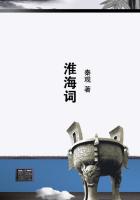Coxey's own army never amounted to more than a few hundred, but it was more in the public eye.It had a large escort of newspaper correspondents who gave picturesque accounts of the march to Washington; and Coxey himself took advantage of this gratuitous publicity to express his views.Among other measures, he urged that since good roads and money were both greatly needed by the country at large, the Government should issue $500,000,000 in "non-interest bearing bonds" to be used in employing workers in the improvement of the roads.After an orderly march through parts of Ohio, Pennsylvania, and Maryland, in the course of which his men received many donations of supplies from places through which they passed, Coxey and his army arrived at Washington on the 1st of May and were allowed to parade to the Capitol under police escort along a designated route.When Coxey left the ranks, however, to cut across the grass to the Capitol, he was arrested on the technical charge of trespassing.The army went into camp, but on the 12th of May the authorities forced the men to move out of the District.They thereupon took up quarters in Maryland and shifted about from time to time.Detachments from the Western bands arrived during June and July, but the total number encamped about Washington probably never exceeded a thousand.Difficulties in obtaining supplies and inevitable collisions with the authorities caused the band gradually to disperse.Coxey, after his short term in jail, traveled about the country trying to stir up interest in his aims and to obtain supplies.The novelty of his movement, however, had worn off, and results were so poor that on the 26th of July he issued a statement saying he could do no more and that what was left of the army would have to shift for itself.In Maryland, the authorities arrested a number of Coxey's "soldiers" as vagrants.
On the 11th of August, a detachment of Virginia militia drove across the Potomac the remnants of the Kelly and Frye armies, which were then taken in charge by the district authorities.They were eventually supplied by the Government with free transportation to their homes.
Of more serious import than these marchings and campings, as evidence of popular unrest, were the activities of organized labor which now began to attract public attention.The Knights of Labor were declining in numbers and influence.The attempt, which their national officers made in January, 1894, to get out an injunction to restrain the Secretary of the Treasury from ****** bond sales really facilitated Carlisle's effort by obtaining judicial sanction for the issue.Labor disturbances now followed in quick succession.In April, there was a strike on the Great Northern Railroad, which for a long time almost stopped traffic between St.Paul and Seattle.Local strikes in the mining regions of West Virginia and Colorado, and in the coke fields of Western Pennsylvania, were attended by conflicts with the authorities and some loss of life.A general strike of the bituminous coal miners of the whole country was ordered by the United Mine Workers on the 21st of April, and called out numbers variously estimated at from one hundred and twenty-five thousand to two hundred thousand; but by the end of July the strike had ended in a total failure.
All the disturbances that abounded throughout the country were overshadowed, however, by a tremendous struggle which centered in Chicago and which brought about new and most impressive developments of national authority.In June, 1893, Eugene V.
Debs, the secretary-treasurer of the Brotherhood of Locomotive Firemen, resigned his office and set about organizing a new general union of railroad employees in antagonism to the Brotherhoods, which were separate unions of particular classes of workers.He formed the American Railway Union and succeeded in instituting 465 local lodges which claimed a membership of one hundred and fifty thousand.In March, 1894, Pullman Company employees joined the new union.On the 11th of May, a class of workers in this company's shops at Pullman, Illinois, struck for an increase of wages, and on the 21st of June the officers of the American Railway Union ordered its members to refuse to handle trains containing Pullman cars unless the demands of the strikers were granted.Although neither the American Federation of Labor nor the Brotherhoods endorsed this sympathetic strike, it soon spread over a vast territory and was accompanied by savage rioting and bloody conflicts.In the suburbs of Chicago the mobs burned numerous cars and did much damage to other property.The losses inflicted on property throughout the country by this strike have been estimated at $80,000,000.
The strikers were undoubtedly encouraged in resorting to force by the sympathetic attitude which Governor Altgeld of Illinois showed towards the cause of labor.The Knights of Labor and other organizations of workingmen had passed resolutions complimenting the Governor on his pardon of the Chicago anarchists, and the American Railway Union counted unduly upon his support in obtaining their ends.The situation was such as to cause the greatest consternation throughout the country, as there was a widespread though erroneous belief that there was no way in which national Government could take action to suppress disorder unless it was called upon by the Legislature, if it happened to be in session, or by the Governor.But at this critical moment, the Illinois Legislature was not in session, and Governor Altgeld refused to call for aid.For a time, it therefore seemed that the strikers were masters of the situation and that law and order were powerless before the mob.















